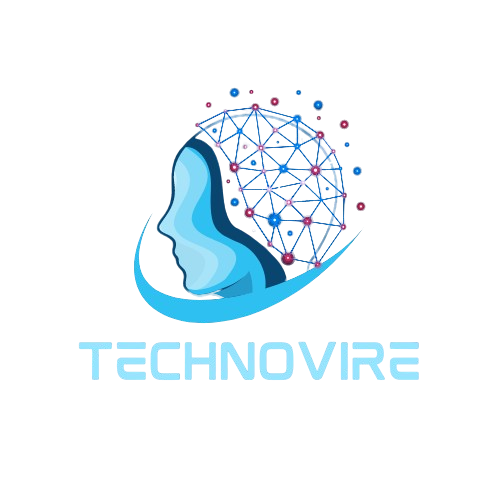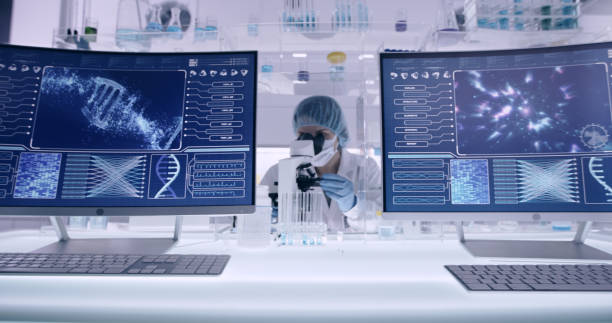Introduction
Healthcare technology is revolutionizing the way we approach medical care, diagnosis, and treatment. From electronic health records (EHRs) to telemedicine, the integration of technology into healthcare has improved efficiency, accuracy, and patient outcomes. This article explores the impact of healthcare technology on modern medicine, highlighting key advancements, benefits, and future prospects.
What is Healthcare Technology?
Healthcare technology encompasses a broad range of tools, devices, and systems designed to enhance the delivery and management of healthcare services. It includes electronic health records, medical imaging equipment, telemedicine platforms, wearable health devices, and advanced treatment technologies. The primary goal of healthcare technology is to improve patient care, streamline medical processes, and support healthcare professionals in their roles.
Key Advancements in Healthcare Technology
- Electronic Health Records (EHRs): EHRs have replaced paper-based records with digital systems that allow for more efficient and accurate record-keeping. They provide healthcare providers with instant access to patient information, enabling better coordination of care and reducing the risk of errors.
- Telemedicine: Telemedicine has gained prominence, especially during the COVID-19 pandemic, by allowing patients to consult with healthcare professionals remotely. This technology has made healthcare more accessible, particularly for those in remote areas or with limited mobility.
- Medical Imaging Technology: Advances in medical imaging, such as MRI, CT scans, and ultrasound, have improved diagnostic accuracy. These technologies enable detailed visualization of internal structures, aiding in the early detection and treatment of various conditions.
- Wearable Health Devices: Wearable devices, including fitness trackers and smartwatches, monitor vital signs, physical activity, and sleep patterns. These devices provide valuable data for both patients and healthcare providers, supporting preventive care and personalized treatment.
- Artificial Intelligence (AI) and Machine Learning: AI and machine learning algorithms are being used to analyze large volumes of medical data, identify patterns, and predict outcomes. These technologies are enhancing diagnostic accuracy, treatment planning, and personalized medicine.
- Robotic Surgery: Robotic-assisted surgical systems enable surgeons to perform complex procedures with greater precision and control. This technology minimizes invasiveness, reduces recovery times, and improves surgical outcomes.
- Blockchain in Healthcare: Blockchain technology offers secure and transparent methods for managing patient data and health records. It ensures data integrity, enhances privacy, and facilitates secure sharing of information across healthcare systems.
- Health Information Exchanges (HIEs): HIEs enable the secure exchange of patient information between different healthcare providers and organizations. This technology promotes continuity of care and reduces duplication of tests and procedures.
Benefits of Healthcare Technology
- Improved Patient Outcomes: Healthcare technology enhances the accuracy of diagnoses and the effectiveness of treatments. Advanced tools and data analytics contribute to better management of chronic conditions and more personalized care.
- Increased Efficiency: Automation and digital systems streamline administrative tasks, reduce paperwork, and minimize errors. This leads to more efficient healthcare delivery and allows healthcare professionals to focus on patient care.
- Enhanced Accessibility: Telemedicine and remote monitoring technologies have made healthcare more accessible, particularly for underserved populations. Patients can receive care without the need for travel, improving convenience and access to services.
- Cost Savings: Technology can reduce healthcare costs by preventing unnecessary tests, improving diagnostic accuracy, and optimizing resource utilization. Wearable devices and remote monitoring also help in early detection, potentially lowering long-term treatment expenses.
- Personalized Medicine: Advances in genomics and data analysis enable personalized treatment plans based on individual genetic profiles and health data. Personalized medicine improves treatment efficacy and minimizes adverse effects.
- Better Data Management: EHRs and health information systems provide comprehensive and organized patient data. This improves the management of medical records, facilitates research, and supports evidence-based decision-making.
- Enhanced Communication: Healthcare technology improves communication between patients and providers, as well as among healthcare teams. Secure messaging systems and patient portals facilitate information exchange and patient engagement.
- Support for Preventive Care: Wearable devices and health apps promote preventive care by tracking health metrics and providing insights into lifestyle factors. This enables early intervention and encourages healthier behaviors.
Challenges in Healthcare Technology
- Data Security and Privacy: Protecting patient data from cyber threats and ensuring privacy is a major concern. Healthcare organizations must implement robust security measures and comply with regulations to safeguard sensitive information.
- Integration and Interoperability: Integrating new technologies with existing systems and ensuring interoperability between different platforms can be challenging. Seamless integration is crucial for effective data sharing and continuity of care.
- Cost of Implementation: The initial cost of adopting new technologies can be high, particularly for smaller healthcare practices and facilities. Financial constraints may impact the ability to invest in advanced technologies.
- Training and Adoption: Healthcare professionals may require training to effectively use new technologies. Ensuring proper education and support is essential for successful adoption and maximizing the benefits of technology.
- Technology Dependence: Over-reliance on technology may lead to potential issues, such as reduced clinical skills or dependency on automated systems. Balancing technology use with clinical expertise is important for maintaining high-quality care.
- Ethical and Legal Issues: The use of AI, data analytics, and patient data raises ethical and legal considerations. Addressing these issues requires careful attention to ethical guidelines, legal frameworks, and patient consent.
Future Prospects in Healthcare Technology
- Advanced AI and Machine Learning: Future advancements in AI and machine learning will continue to enhance diagnostic capabilities, treatment planning, and patient monitoring. These technologies will likely play a central role in personalized medicine and predictive analytics.
- Wearable Health Innovations: The development of more advanced wearable devices with enhanced sensors and capabilities will provide deeper insights into health metrics and support real-time monitoring and intervention.
- Telehealth Expansion: Telehealth services are expected to grow, with advancements in remote consultation technologies and virtual care platforms. This expansion will further improve access to healthcare services and support remote patient management.
- Precision Medicine: Advances in genomics and biotechnology will lead to more precise and individualized treatment approaches. Precision medicine will enable targeted therapies based on genetic and molecular profiles.
- Robotic and Minimally Invasive Surgery: Future developments in robotic surgery will focus on increasing precision, reducing invasiveness, and expanding the range of procedures that can be performed robotically.
- Blockchain Applications: The use of blockchain for secure data management and health information exchanges will likely increase, enhancing data security and patient control over their health information.
- Integration of Virtual Reality (VR) and Augmented Reality (AR): VR and AR technologies have the potential to transform medical training, patient education, and treatment planning. These technologies will offer immersive and interactive experiences for both healthcare professionals and patients.
Practical Tips for Adopting Healthcare Technology
- Evaluate Technology Options: Research and evaluate different healthcare technologies to determine which best meet your needs and goals. Consider factors such as functionality, cost, and ease of use.
- Prioritize Data Security: Implement robust security measures to protect patient data and ensure compliance with privacy regulations. Regularly update and review security protocols to address emerging threats.
- Invest in Training: Provide comprehensive training for healthcare professionals to ensure effective use of new technologies. Ongoing education and support are crucial for successful implementation.
- Seek Professional Advice: Consult with technology experts and healthcare consultants to guide the selection and implementation of healthcare technologies. Their expertise can help optimize technology use and address potential challenges.
- Monitor and Evaluate: Continuously monitor the performance and impact of adopted technologies. Regular evaluation helps identify areas for improvement and ensures that technology investments are delivering the desired outcomes.
- Engage Patients: Educate patients about the benefits of healthcare technology and encourage their participation in using digital tools and platforms. Patient engagement is key to maximizing the benefits of technology.
Conclusion
Healthcare technology is transforming the landscape of modern medicine, offering innovative solutions to improve patient care, enhance efficiency, and support better health outcomes. By embracing advancements such as electronic health records, telemedicine, AI, and wearable devices, healthcare providers and patients alike can benefit from more effective and personalized care. As technology continues to evolve, its integration into healthcare will play an increasingly important role in shaping the future of medicine and promoting healthier lives.

